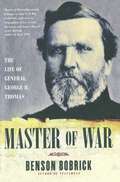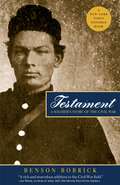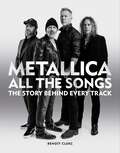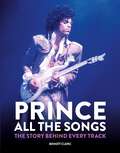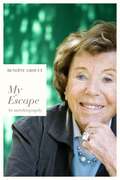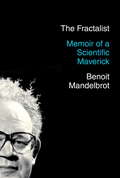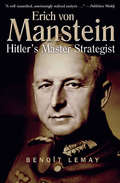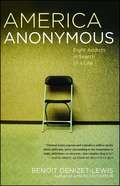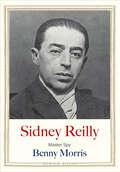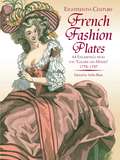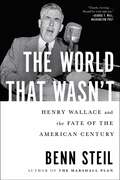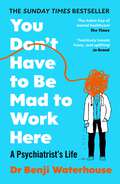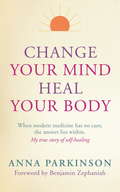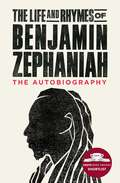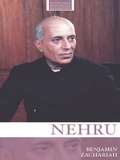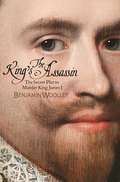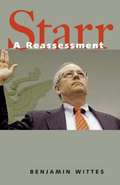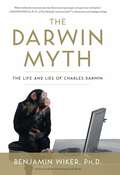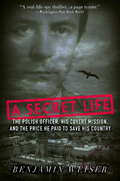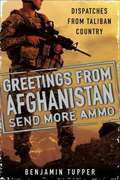- Table View
- List View
Master of War: The Life of General George H. Thomas
by Benson BobrickIn this revelatory, dynamic biography, one of our finest historians, Benson Bobrick, profiles George H. Thomas, arguing that he was the greatest and most successful general of the Civil War. Because Thomas didn't live to write his memoirs, his reputation has been largely shaped by others, most notably Ulysses S. Grant and William Tecumseh Sherman, two generals with whom Thomas served and who, Bobrick says, diminished his successes in their favor in their own memoirs. Born in Virginia, Thomas survived Nat Turner's rebellion as a boy, then studied at West Point, where Sherman was a classmate. Thomas distinguished himself in the Mexican War and then returned to West Point as an instructor. When the Civil War broke out, Thomas remained loyal to the Union, unlike fellow Virginia-born officer Robert E. Lee (among others). He compiled an outstanding record as an officer in battles at Mill Springs, Perryville, and Stones River. At the Battle of Chickamauga, Thomas, at the time a corps commander, held the center of the Union line under a ferocious assault, then rallied the troops on Horseshoe Ridge to prevent a Confederate rout of the Union army. His extraordinary performance there earned him the nickname "The Rock of Chickamauga." Promoted to command of the Army of the Cumberland, he led his army in a stunning Union victory at the Battle of Chattanooga. Thomas supported Sherman on his march through Georgia in the spring of 1864, winning an important victory at the Battle of Peachtree Creek. As Sherman continued on his March to the Sea, Thomas returned to Tennessee and in the battle of Nashville destroyed the army of Confederate General John Bell Hood. It was one of the most decisive victories of the war, and Thomas won it even as Grant was on his way to remove Thomas from his command. (When Grant discovered the magnitude of Thomas's victory, he quickly changed his mind.) Thomas died of a stroke in 1870 while still on active duty. In the entire Civil War, he never lost a battle or a movement. Throughout his career, Thomas was methodical and careful, and always prepared. Unlike Grant at Shiloh, he was never surprised by an enemy. Unlike Sherman, he never panicked in battle but always remained calm and focused. He was derided by both men as "Slow Trot Thomas," but as Bobrick shows in this brilliant biography, he was quick to analyze every situation and always knew what to do and when to do it. He was not colorful like Grant and Sherman, but he was widely admired by his peers, and some, such as Grant's favorite cavalry commander, General James H. Wilson, thought Thomas the peer of any general in either army. He was the only Union commander to destroy two Confederate armies in the field. Although historians of the Civil War have always regarded Thomas highly, he has never captured the public imagination, perhaps because he has lacked an outstanding biographer -- until now. This informed, judicious, and lucid biography at last gives Thomas his due.
Testament: A Soldier's Story of the Civil War
by Benson BobrickThe story of the author's great-grandfather's Civil War experience, based on a remarkable set of newly discoverd letters—a powerful, moving addition to the firsthand soldiers' accounts of the Civil War.Dear Mother, I was very glad to hear from home this morning. It is the first time since I left Otterville. We marched from Sedalia 120 miles....I almost feel anxious to be in a battle & yet I am almost afraid. I feel very brave sometimes & think if I should be in an engagement, I never would leave the field alive unless the stars & stripes floated triumphant. I do not know how it may be. If there is a battle & I should fall, tell with pride & not with grief that I fell in defense of liberty. Pray that I may be a true soldier. Not since Stephen Crane's The Red Badge of Courage have the trials and tribulations of a private soldier of the Civil War been told with such beguiling force. The Red Badge of Courage, however, was fiction. This story is true. In Testament, Benson Bobrick draws upon an extraordinarily rich but hitherto untapped archive of material to create a continuous narrative of how that war was fought and lived. Here is virtually the whole theater of conflict in the West, from its beginnings in Missouri, through Kentucky and Tennessee, to the siege of Atlanta under Sherman, as experienced by Bobrick's great-grandfather, Benjamin W. ("Webb") Baker, an articulate young Illinois recruit. Born and raised not far from the Lincoln homestead in Coles County, Webb had stood in the audience of one of the Lincoln-Douglas debates, become a staunch Unionist, and answered one of Abraham Lincoln's first calls for volunteers. The ninety-odd letters on which his story is based are fully equal to the best letters the war produced, especially by a common soldier; but their wry intelligence, fortitude, and patriotic fervor also set them apart with a singular and still-undying voice. In the end, that voice blends with the author's own, as the book becomes a poignant tribute to his great-grandfather's life -- and to all the common soldiers of the nation's bloodiest war.
Abba: The Story Behind Every Track
by Benoît ClercTHE DEFINITIVE RECORDING HISTORY OF SWEDISH SUPERSTARS, ABBA, TOLD ALBUM-BY-ALBUM AND SONG-BY-SONG.Filled with fascinating photography (some rarely seen) and sensational behind-the-scenes details.Discover the untold stories behind ABBA's greatest hits, including the iconic 'Waterloo', 'Mamma Mia' and 'Dancing Queen' in this loving and thorough dissection of every album and song released by the pop megastars. From their first single in 1972, all the way up to their Grammy-nominated studio album, Voyage, and their revolutionary virtual tour, this definitive tome uncovers the full story behind every track that ABBA released.In over 500 pages, no stone is left unturned. Drawing upon decades of research, expert author Benoît Clerc recounts the circumstances that led to the composition of every song - detailing the inspiration behind the lyrics, the recording process and the instruments that shaped ABBA's distinctive sound.Featuring hundreds of photographs, including rare publicity stills, images of the instruments used by the band, and shots of the musicians on-stage and in-studio, Abba: All the Songs is the perfect gift for any fan of pop.
Abba: The Story Behind Every Track
by Benoît ClercTHE DEFINITIVE RECORDING HISTORY OF SWEDISH SUPERSTARS, ABBA, TOLD ALBUM-BY-ALBUM AND SONG-BY-SONG.Filled with fascinating photography (some rarely seen) and sensational behind-the-scenes details.Discover the untold stories behind ABBA's greatest hits, including the iconic 'Waterloo', 'Mamma Mia' and 'Dancing Queen' in this loving and thorough dissection of every album and song released by the pop megastars. From their first single in 1972, all the way up to their Grammy-nominated studio album, Voyage, and their revolutionary virtual tour, this definitive tome uncovers the full story behind every track that ABBA released.In over 500 pages, no stone is left unturned. Drawing upon decades of research, expert author Benoît Clerc recounts the circumstances that led to the composition of every song - detailing the inspiration behind the lyrics, the recording process and the instruments that shaped ABBA's distinctive sound.Featuring hundreds of photographs, including rare publicity stills, images of the instruments used by the band, and shots of the musicians on-stage and in-studio, Abba: All the Songs is the perfect gift for any fan of pop.
Metallica All the Songs
by Benoît ClercThis is the most in-depth exploration of Metallica's songs ever written.From their widely circulated demo, No Life 'til Leather, all the way to their 10th studio album Hardwired... to Self-Destruct - Metallica have earned the title of the biggest heavy metal band on the planet. Their albums, including the hugely influential Master of Puppets, are now considered classics of rock and metal, while singles such as Enter Sandman, Fade to Black and For Whom the Bell Tolls have stood the test of time. Follow the epic journey of the godfathers of thrash metal, song-by-song, and see how they became one of the biggest selling bands in the world.No stone is left unturned across more than 500 pages, illustrated with incredible photography throughout, from the inspiration behind the lyrics and melodies to the recording process and even the musicians and producers who worked on each track.Uncover the stories behind the music in this truly definitive book - a must-have for every Metallica fan.
Metallica All the Songs
by Benoît ClercThis is the most in-depth exploration of Metallica's songs ever written.From their widely circulated demo, No Life 'til Leather, all the way to their 10th studio album Hardwired... to Self-Destruct - Metallica have earned the title of the biggest heavy metal band on the planet. Their albums, including the hugely influential Master of Puppets, are now considered classics of rock and metal, while singles such as Enter Sandman, Fade to Black and For Whom the Bell Tolls have stood the test of time. Follow the epic journey of the godfathers of thrash metal, song-by-song, and see how they became one of the biggest selling bands in the world.No stone is left unturned across more than 500 pages, illustrated with incredible photography throughout, from the inspiration behind the lyrics and melodies to the recording process and even the musicians and producers who worked on each track.Uncover the stories behind the music in this truly definitive book - a must-have for every Metallica fan.
Prince: The Story Behind Every Track
by Benoît Clerc"Prince: All the Songs is a major achievement...[It] may be the definitive single-volume book about Prince for both its breadth and the way it views his life through the songs that were the true essence of his being." - PsychobabbleSpanning nearly 50 years of albums, EPs, B-sides, and more, read the full story behind all of the songs that Prince ever released. Moving chronologically through his epic back catalogue, expert author Benoît Clerc analyses everything there is to know about each song and session.No stone is left unturned across more than 600 pages, illustrated with incredible photography throughout. From the inspiration behind the lyrics and melody to the recording process and even the musicians and producers who worked on each track, uncover the stories behind the music in this truly definitive book - a must-have for every Prince fan.
Prince: The Story Behind Every Track
by Benoît ClercSpanning nearly 50 years of albums, EPs, B-sides, and more, read the full story behind all of the songs that Prince ever released. Moving chronologically through his epic back catalogue, expert author Benoît Clerc analyses everything there is to know about each song and session.No stone is left unturned across more than 600 pages, illustrated with incredible photography throughout. From the inspiration behind the lyrics and melody to the recording process and even the musicians and producers who worked on each track, uncover the stories behind the music in this truly definitive book - a must-have for every Prince fan.
My Escape: An Autobiography
by Benoite GroultThis witty autobiography captures the rich and varied life of a renowned French author and pioneering feminist, through the obstacles and movements in twentieth-century France. Born in 1920 in Paris, Benoite Groult obtained the right to vote only when she was twenty-five years old. She married four times, bore three children, underwent several illegal abortions, became a writer after she turned forty, and a feminist in her fifties. Groult chronicles her experiences and her intellectual developments through successive phases--as an obedient child, an awkward and bookish adolescent, and a submissive wife--until finally becoming a liberated novelist. Here, she recounts the childhood trips she spent with her family, Paris during the occupation, her marriages, motherhood, and her continuous fight for women's rights. At ninety-one years old, she concludes that she has been, and still is, a happy woman--lucky to have captured her freedoms, one by one, paying for them, delighting in them, and loving them. Sexy, chatty, and full of shrewd insight, My Escape covers her years of struggle and success--as a daughter, lover, writer, wife, mother, and reluctant socialite--and draws a portrait of the role of French women in the twentieth century.
The Fractalist
by Benoit MandelbrotA fascinating memoir from the man who revitalized visual geometry, and whose ideas about fractals have changed how we look at both the natural world and the financial world.Benoit Mandelbrot, the creator of fractal geometry, has significantly improved our understanding of, among other things, financial variability and erratic physical phenomena. In The Fractalist, Mandelbrot recounts the high points of his life with exuberance and an eloquent fluency, deepening our understanding of the evolution of his extraordinary mind. We begin with his early years: born in Warsaw in 1924 to a Lithuanian Jewish family, Mandelbrot moved with his family to Paris in the 1930s, where he was mentored by an eminent mathematician uncle. During World War II, as he stayed barely one step ahead of the Nazis until France was liberated, he studied geometry on his own and dreamed of using it to solve fresh, real-world problems. We observe his unusually broad education in Europe, and later at Caltech, Princeton, and MIT. We learn about his thirty-five-year affiliation with IBM's Thomas J. Watson Research Center and his association with Harvard and Yale. An outsider to mainstream scientific research, he managed to do what others had thought impossible: develop a new geometry that combines revelatory beauty with a radical way of unfolding formerly hidden laws governing utter roughness, turbulence, and chaos. Here is a remarkable story of both the man's life and his unparalleled contributions to science, mathematics, and the arts.
Erich von Manstein: Hitler's Master Strategist
by Benoit LemayA Selection of the Military Book Club: An “informative and objective” biography of a genius commander and a study of his loyalty to the Nazi cause (Library Journal).To many close students of World War II, Erich von Manstein is considered the greatest commander of the war, if not the entire twentieth century. He devised the plan that conquered France in 1940, and led an infantry corps in that campaign. At the head of a panzer corps he reached the gates of Leningrad in 1941, then took command of 11th Army and conquered Sevastopol and the Crimea. After destroying another Soviet army in the north, he was given command of the ad hoc Army Group Don to retrieve the German calamity at Stalingrad, whereupon he launched a counteroffensive that, against all odds, restored the German front. Afterward he commanded Army Group South, nearly crushing the Soviets at Kursk, and then skillfully resisted their relentless attacks as he traded territory for coherence in the East.Though an undoubtedly brilliant military leader—whose achievements, considering the forces at his disposal, rivaled of Patton, Rommel, MacArthur, and Montgomery—surprisingly little is known about Manstein himself, save for his own memoir and the accolades of his contemporaries. In this book we finally have a full portrait of the man, including his campaigns, and an analysis of what precisely kept a genius like Manstein harnessed to such a dark cause.A great military figure, but a man who lacked a sharp political sense, Manstein was very much representative of the Germano-Prussian military caste of his time. Though Hitler was uneasy about the influence he’d gained throughout the German Army, Manstein ultimately declined to join any clandestine plots against his Führer, believing they would simply cause chaos, the one thing he abhorred. Though he constantly opposed Hitler on operational details, he considered it a point of loyalty to simply stand with the German state, in whatever form. Though not bereft of personal opinions, his primary allegiances were, first, to Deutschland, and second, to the soldiers under his command, who’d been committed against an enemy many times their strength.It is thus through Manstein that the attitudes of other high-ranking officers who fought during the Second World War, particularly on the Eastern Front, can be illuminated. This book is “a well-researched, convincingly reasoned analysis of a general widely considered one of WWII’s great commanders” (Publishers Weekly).Includes photographs
America Anonymous: Eight Addicts in Search of a Life
by Benoit Denizet-LewisAMERICA ANONYMOUS is the unforgettable story of eight men and women struggling with addictions. For nearly three years acclaimed journalist Benoit Denizet-Lewis immersed himself in their lives as they battled drug and alcohol abuse, overeating, and compulsive gambling and sexuality. Alternating with their stories is Denizet-Lewis's candid account of his own recovery from sexual addiction and his compelling examination of our culture of addiction, where we obsessively search for new and innovative ways to escape the reality of the present moment and make ourselves "feel better."Addiction is arguably this country's biggest public-health crisis, triggering and exacerbating many of our most pressing social problems, from crime to child abuse and neglect. But while cancer and AIDS survivors have taken to the streets and to the halls of Congress demanding to be heard, millions of addicts talk only to one another in the confines of anonymous Twelve Step meetings. Through the riveting stories in this book, Denizet-Lewis shines a spotlight on addiction and breaks through the shame and denial that still shape our understanding of it--and hamper our ability to treat it.As these eight addicts stumble, fall, and try again to make a different and better life, Denizet-Lewis records their struggles, and his own, with honesty and empathy.to make a different and better life, Denizet-Lewis records their struggles -- and his own -- with honesty and empathy.
Sidney Reilly: Master Spy (Jewish Lives)
by Benny MorrisA revealing biography of Sidney Reilly, the early twentieth-century virtuoso of espionage Sidney Reilly (c. 1873–1925) is one of the most colorful and best-known spies of the twentieth century. Emerging from humble beginnings in southern Russia, Reilly was an inventive multilingual businessman and conman who enjoyed espionage as a sideline. By the early twentieth century he was working as an agent for Scotland Yard, spying on émigré communities in Paris and London, with occasional sorties to Germany, Russia, and the Far East. He spent World War I in the United States, brokering major arms deals for tsarist Russia, and then decided to become a professional spy, joining the ranks of MI6, Britain&’s foreign intelligence service. He came close to overthrowing the Bolshevik regime in Moscow before eventually being lured back to Russia and executed. Said to have been the inspiration for Ian Fleming&’s iconic James Bond character, Reilly was simultaneously married to three or four women and had mistresses galore. Sifting through the reality and the myth of Reilly&’s life, historian Benny Morris offers a fascinating portrait of one of the most intriguing figures from the golden age of spies.
Eighteenth-Century French Fashions in Full Color: His Life and Art
by Bennard B. PerlmanThe Galerie des Modes has been called the "most beautiful collection in existence on the fashions of the 18th century." Published over a 10-year period, its plates were elegantly drawn, accurately engraved, and exquisitely hand colored. Here are 64 of the finest plates, reproduced faithfully from the originals and selected by costume historian Stella Blum.
The World That Wasn't: Henry Wallace and the Fate of the American Century
by Benn SteilFrom the acclaimed economist-historian and author of The Marshall Plan comes a dramatic and powerful new perspective on the political career of Henry Wallace—a perspective that will forever change how we view the making of US and Soviet foreign policy at the dawn of the Cold War.Henry Wallace is the most important, and certainly the most fascinating, almost-president in American history. As FDR&’s third-term vice president, and a hero to many progressives, he lost his place on the 1944 Democratic ticket in a wild open convention, as a result of which Harry Truman became president on FDR&’s death. Books, films, and even plays have since portrayed the circumstances surrounding Wallace&’s defeat as corrupt, and the results catastrophic. Filmmaker Oliver Stone, among others, has claimed that Wallace&’s loss ushered in four decades of devastating and unnecessary Cold War. Now, based on striking new finds from Russian, FBI, and other archives, Benn Steil&’s The World That Wasn&’t paints a decidedly less heroic portrait of the man, of the events surrounding his fall, and of the world that might have been under his presidency. Though a brilliant geneticist, Henry Wallace was a self-obsessed political figure, blind to the manipulations of aides—many of whom were Soviet agents and assets. From 1933 to 1949, Wallace undertook a series of remarkable interventions abroad, each aimed at remaking the world order according to his evolving spiritual blueprint. As agriculture secretary, he fell under the spell of Russian mystics, and used the cover of a plant-gathering mission to aid their doomed effort to forge a new theocratic state in Central Asia. As vice president, he toured a Potemkin Siberian continent, guided by undercover Soviet security and intelligence officials who hid labor camps and concealed prisoners. He then wrote a book, together with an American NKGB journalist source, hailing the region&’s renaissance under Bolshevik leadership. In China, the Soviets uncovered his private efforts to coax concessions to Moscow from Chiang Kai-shek, fueling their ambitions to dominate Manchuria. Running for president in 1948, he colluded with Stalin to undermine his government&’s foreign policy, allowing the dictator to edit his most important election speech. It was not until 1950 that he began to acknowledge his misapprehensions regarding the Kremlin&’s aims and conduct. Meticulously researched and deftly written, The World That Wasn&’t is a spellbinding work of political biography and narrative history that will upend how we see the making of the early Cold War.
You Don't Have to Be Mad to Work Here: The instant Sunday Times bestseller
by Benji Waterhouse**THE SUNDAY TIMES BESTSELLER**A humane, hilarious and heart-breaking window into the world of psychiatry from ‘the Adam Kay of mental healthcare’ (THE TIMES) 'Very funny and deeply sympathetic. Really excellent' HENRY MARSH'This is honestly my dream book. Both fascinating and bleakly funny' FERN BRADY‘Honest, funny, saddening and uplifting all rolled into one’ JO BRANDA woman in a wedding dress arrives at the hospital looking for Harry Styles.A lorry driver with schizophrenia believes he’s got a cure for coronavirus.A depressed man hides his profession from his GP due to stigma.Most of the psychiatric cases in this book are his patients. Some of them are family. One of them is him.Unlocking the doors to the psych ward, NHS psychiatrist Dr Benji Waterhouse provides a fly-on-the-padded-wall account of medicine’s most mysterious and controversial speciality.Why would anyone in their right mind choose to be a psychiatrist? Are the solutions to people’s messy lives really within medical school textbooks? And how can vulnerable patients receive the care they need when psychiatry lacks staff, hospital beds and any actual cures?You Don’t Have to Be Mad to Work Here explores these complicated questions from both sides of the doctor’s desk.This is the perfect read for fans of This Is Going to Hurt, Unnatural Causes and The Prison Doctor.Instant Sunday Times bestseller, May 2024
Change Your Mind, Heal Your Body
by Benjamin Zephaniah Anna ParkinsonYour body is trying to tell you what's wrong! A successful journalist-turned healer describes her innovative system of healing through the lens of her own self-healing journey. Parkinson was a busy workaholic reporter who yearned to leave her stressful job when she was diagnosed with a mysterious tumor behind her carotid artery. At first she pursued the traditional medical route, but after a series of frustrating mishaps with the medical system, she began to investigate alternative healing. Her search brought her into contact with such venerable healing philosophies as the ancient Hindu chakra and the simpler Hawaiian system. She eventually met Martin Brofman, founder of Body Mirror Healing, who taught her how to delve into her emotional blockages underpinning the illness. The breakthrough came when she realized that her body was communicating to her through the message of cancer. She ultimately developed a series of simple exercises, shared in the book, that help people better listen to their bodies and bring the energy needed to wipe away disease.
The Life and Rhymes of Benjamin Zephaniah: The Autobiography
by Benjamin Zephaniah*BBC Radio 4 Book of the Week* Benjamin Zephaniah, who has travelled the world for his art and his humanitarianism, now tells the one story that encompasses it all: the story of his life. In the early 1980s when punks and Rastas were on the streets protesting about unemployment, homelessness and the National Front, Benjamin&’s poetry could be heard at demonstrations, outside police stations and on the dance floor. His mission was to take poetry everywhere, and to popularise it by reaching people who didn&’t read books. His poetry was political, musical, radical and relevant. By the early 1990s, Benjamin had performed on every continent in the world (a feat which he achieved in only one year) and he hasn&’t stopped performing and touring since. Nelson Mandela, after hearing Benjamin&’s tribute to him while he was in prison, requested an introduction to the poet that grew into a lifelong relationship, inspiring Benjamin&’s work with children in South Africa. Benjamin would also go on to be the first artist to record with The Wailers after the death of Bob Marley in a musical tribute to Nelson Mandela.The Life and Rhymes of Benjamin Zephaniah is a truly extraordinary life story which celebrates the power of poetry and the importance of pushing boundaries with the arts.
Nehru (Routledge Historical Biographies)
by Benjamin ZachariahThis engaging new biography dispels many myths surrounding Nehru, and distinguishes between the icon he has become and the politician he actually was. Benjamin Zachariah places Nehru in the context of the issues of his time, including the central theme of nationalism, the impact of Cold War pressures on India and the transition from colonial control to a precarious independence. How did Jawaharlal Nehru come to lead the Indian nationalist movement, and how did he sustain his leadership as the first Prime Minister of independent India? Nehru's vision of India, its roots in Indian politics and society, as well as its viability have been central to historical and present-day views of India. Connecting the domestic and international aspects of his political life and ideology, this study provides a fascinating insight into Nehru, his times and his legacy.
The King's Assassin: The Secret Plot to Murder King James I
by Benjamin WoolleyAn absorbing account of the conspiracy to kill King James I by his handsome lover, the Duke of Buckingham, an historical crime that has remained hidden for 400 years.The rise of George Villiers from minor gentry to royal power seemed to defy gravity. Becoming gentleman of the royal bedchamber in 1615, the young gallant enraptured James, Britain’s first Stuart king, royal adoration reaching such an intensity that the king declared he wanted the courtier to become his ‘wife’. For a decade, Villiers was at the king’s side – at court, on state occasions, and in bed, right up to James’s death in March 1625.Almost immediately, Villiers’ many enemies accused him of poisoning the king. A parliamentary investigation was launched, and scurrilous pamphlets and ballads circulated London’s streets. But the charges came to nothing, and were relegated to a historical footnote. Now, new research suggests that a deadly combination of hubris and vulnerability did indeed drive Villiers to kill the man who made him. It may have been by accident – the application of a quack remedy while the king was weakened by a malarial attack. But there is compelling evidence that Villiers, overcome by ambition and frustrated by James’s passive approach to government, poisoned him.In The King’s Assassin, acclaimed author Benjamin Woolley examines this remarkable, even tragic story. Combining vivid characterization and a strong narrative with historical scholarship and forensic investigation, Woolley tells the story of King James’s death, and of the captivating figure at its center.
Starr: A Reassessment
by Benjamin WittesAn attempt at a balanced view of Ken Starr's contributions.
The Darwin Myth: The Life and Lies Charles Darwin
by Benjamin WikerIn The Darwin Myth, author Benjamin Wiker offers a critical analysis of Darwin's theories as well as the social, scientific, and religious implications of his work, leading us to the inevitable truth about Darwin's powerful - yet ultimately poisonous - legacy. Scientists often challenge conventional wisdom and spark debates that last for generations. But no scientist has fuelled more debate than Charles Darwin.To some he is the revolutionary 'father' of evolution. To others he is the perverse 'originator' of modern eugenics. And in The Darwin Myth: The Life and Lies of Charles Darwin, author Benjamin Wiker brings these conflicting identities to light. He offers a critical examination of Darwin's theories as well as the scientific, social, and religious implications of his life and work. In The Darwin Myth, Wiker reveals: How Darwin's theories were originally met by scepticism and criticism - much of which he couldn't refute and are still valid today; why Darwin didn't 'discover' evolution; and how science itself suggests God created the universe. Laying out the evidence and sound scientific arguments, Wiker illuminates the inevitable truth about Darwin's powerful - yet ultimately poisonous - legacy.
A Secret Life
by Benjamin WeiserIn August 1972, Ryszard Kuklinski, a highly respected colonel in the Polish Army, embarked on what would become one of the most extraordinary human intelligence operations of the Cold War. Despite the extreme risk to himself and his family, he contacted the American Embassy in Bonn, and arranged a secret meeting. From the very start, he made clear that he deplored the Soviet domination of Poland, and believed his country was on the wrong side of the Cold War. Over the next nine years, Kuklinski rose quickly in the Polish defense ministry, acting as a liaison to Moscow, and helping to prepare for a "hot war" with the West. But he also lived a life of subterfuge--of dead drops, messages written in invisible ink, miniature cameras, and secret transmitters. In 1981, he gave the CIA the secret plans to crush Solidarity. Then, about to be discovered, he made a dangerous escape with his family to the West. He still lives in hiding in America. Kuklinski's story is a harrowing personal drama about one man's decision to betray the Communist leadership in order to save the country he loves, and the intense debate it spurred over whether he was a traitor or a patriot. Through extensive interviews and access to the CIA's secret archive on the case, Benjamin Weiser offers an unprecedented and richly detailed look at this secret history of the Cold War.
The Mysterious Mr. Nakamoto: A Fifteen-Year Quest to Unmask the Secret Genius Behind Crypto
by Benjamin WallaceA thrilling investigation into the mysterious identity of Bitcoin&’s creator and a deep dive into crypto&’s utopian origin story—from The New York Times bestselling author of The Billionaire&’s Vinegar&“Could be the best mystery story of the past twenty years.&”—James Patterson &“The Mysterious Mr. Nakamoto will leave you amazed, enlightened, and utterly breathless.&”—Robert Kolker, #1 New York Times bestselling author of Hidden Valley RoadIn October 2008, someone going by the name Satoshi Nakamoto posted a white paper outlining &“a peer-to-peer electronic cash system&” called Bitcoin to an arcane listserv populated by Cypherpunks. No one in the community had heard of Nakamoto, and just as people were starting to wonder who he was, he vanished. As the years passed, and the scope of Nakamoto&’s achievement became clear, the truth of his identity grew into the greatest unsolved mystery of our time.The Mysterious Mr. Nakamoto traces Benjamin Wallace&’s attempt to unmask the figure behind the currency and the world it wrought. Nakamoto&’s Bitcoin at first seemed destined to fulfill the dreams of fringe 1990s utopians for a currency set free from governments and big banks. Yet after he disappeared, his creation took on a strange new life in the financial markets, where rampant speculation fueled a vision of crypto as a potential windfall, inviting charlatans and scammers and opening a vast gulf between Bitcoin&’s idealistic origins and its troubled reputation.But who was Nakamoto? Whoever he was could rightly claim to have invented one of the most important technologies of the new century. And Nakamoto was a billionaire—his Bitcoin wallet held an untouched eleven-figure fortune waiting to be claimed.With the same propulsive-narrative flair that made his New York Times bestseller The Billionaire&’s Vinegar an instant success, Benjamin Wallace presents a page-turning work of investigative journalism. Tracking leads from London to Oslo to Los Angeles, from coastal Australia to the Arizona desert, he takes readers through a rogues&’ gallery tour of Nakamoto suspects—from benevolent geniuses like cryptographer Hal Finney to difficult ones like a reclusive polymath known to his followers only as Jim; from the mercurial Australian Craig Wright, who claims to be Nakamoto, to a secret team at the National Security Agency. With the forensic skill of Sherlock Holmes and the storytelling verve of Arthur Conan Doyle, Wallace follows the trail of computer code and personal writings to the heart of the Nakamoto mystery while interrogating the very nature of mystery itself.
Greetings From Afghanistan, Send More Ammo
by Benjamin Tupper"Raw, direct, and powerful. . . This work is vitally important. " -Ken Stern, former CEO of National Public Radio Captain Benjamin Tupper spent a year in Afghanistan in an Embedded Training Team, tasked with training, leading in combat, and mentoring the Afghan Army to victory against the brutal Taliban. Writing and recording from a remote outpost, Tupper's dispatches were posted on the blog The Sandbox and broadcast on NPR, bringing vivid snapshots of America's longest ongoing war to a wide audience back home. Here, he takes us inside the intricacies of the war, opening up a unique and multifaceted view of both Afghan culture and the daily life of an American soldier. From the rush of gunfire to surreal, euphoric moments of cross-cultural understanding, this emotional and thought- provoking narrative is rich with humor, eloquence and contradiction. Deeply personal and darkly funny, Tupper illuminates the challenges of the war, vividly bringing to life both the mundane and the extraordinary and seeking a way forward.
